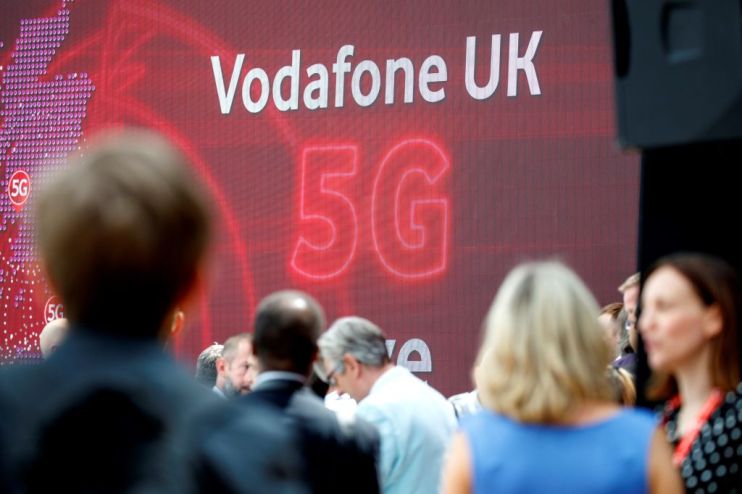Government urged to fast-track 5G roll out to boost coronavirus recovery

The government could boost overall economic activity by £150bn if the UK were to speed up 5G rollout by two years, a new report has found, as Britain seeks to bolster its economy from the financial turmoil of coronavirus.
A new report published today by Vodafone found that the British economy could see productivity gains of more than £38bn over the next five years if the UK were to launch its 5G infrastructure in 2025, two years earlier than planned. Across a ten-year time frame this could mean a boost to UK output of more than £158bn, the report showed.
In London, an earlier 5G rollout could boost productivity by £9.1bn over the next five years, hiking to £28.8bn by 2030, the report showed.
Government plans to roll out new 5G infrastructure could see data speeds up to 100 times faster than the current 4G network, which will likely help transform business across sectors.
Research from O2 suggested that 5G will be instrumental to transforming the healthcare industry, and will free up more than one million hours of GP time each year by facilitating real-time health monitoring and video conferencing.
Rollout of the new technology is also integral to Prime Minister Boris Johnson’s target to have full-fibre “gigabit broadband sprouting in every home” by the end of 2025, as part of plans to level up rural parts of Britain.
Johnson is expected to unveil plans for reviving the British economy tomorrow, as the UK faces its worst recession on record as a result of the pandemic.
Speaking to Sky News yesterday, the Prime Minister said: “We’re building now very much a road to recovery, a road map focusing on infrastructure right now, levelling up across the country, focusing on roads, broadband — the type of things that effectively help to create jobs but also provide services and economic growth and opportunity across the country.”
Mayor of London Sadiq Khan said: “As our economy begins to recover from the effects of Covid-19, we need to explore the potential of 5G to improve Londoners’ lives – from how they get around the city to how they access healthcare.
“Through our ambitious work on improving digital connectivity, we’re using London’s streets and the Tube network to improve fibre coverage and lay the foundations for 5G over the next decade.”
The UK’s efforts to roll out 5G have been stilted by indecision over whether to U-turn on a deal with Huawei over security fears.
Johnson has faced mounting pressure to scrap a contract with the Chinese tech firm to build 35 per cent of the UK’s 5G network, amid concerns technology made by the company could be used in Beijing for spying. Huawei has repeatedly denied the claims.
O2 last year snubbed the Chinese vendor in favour of Swedish telecoms firm Ericsson, amping up pressure for other UK networks to follow suit.
However, many companies have warned that ripping out Huawei technology from core 5G networks would prove too costly. BT, which owns mobile network EE, is heavily reliant on Huawei in its UK mobile and full-fibre networks, and has warned that it will cost £500m to remove equipment made by the Chinese vendor from its network.
Vodafone earlier this month doubled down on its partnership with Huawei, claiming that the UK would lose its footing as the global leader in 5G if it had to rip out technology made by the Chinese firm.
“We are not tied to one supplier, but it is important to understand the extent of what is at stake here,” said Vodafone chief technology officer Scott Perry.
“The UK’s leadership in 5G will be lost if mobile operators are forced to spend time and money replacing existing equipment.”
Before the Open: Get the jump on the markets with our early morning newsletter